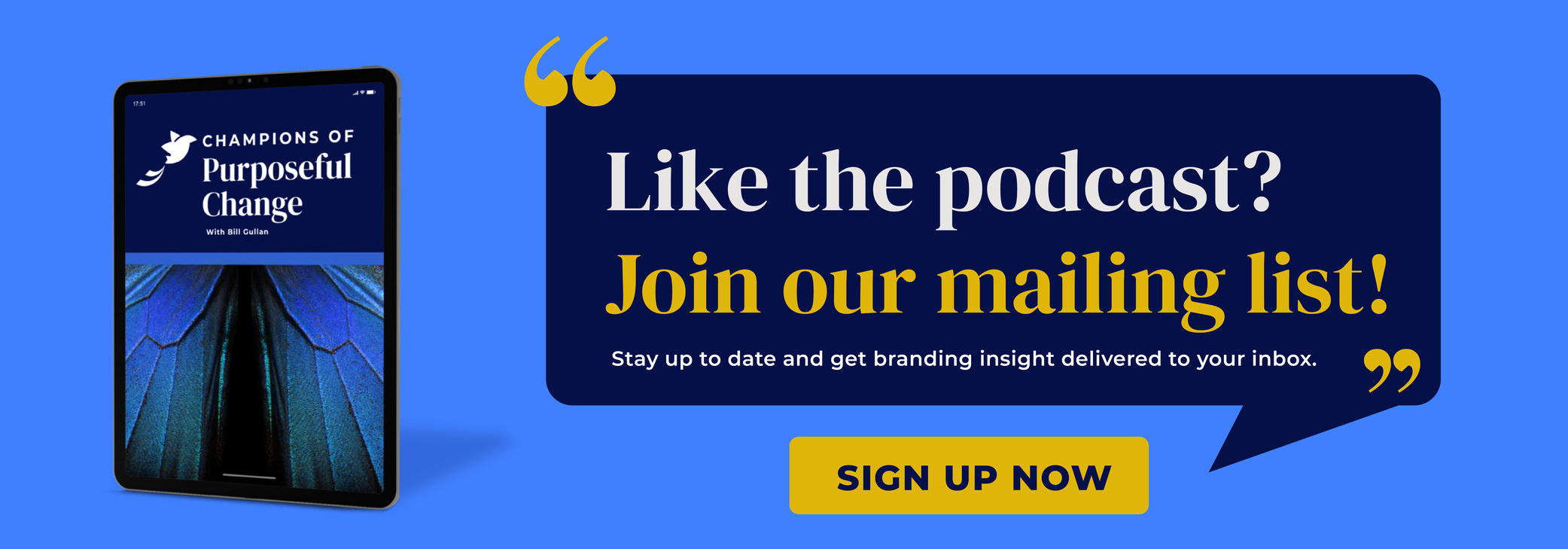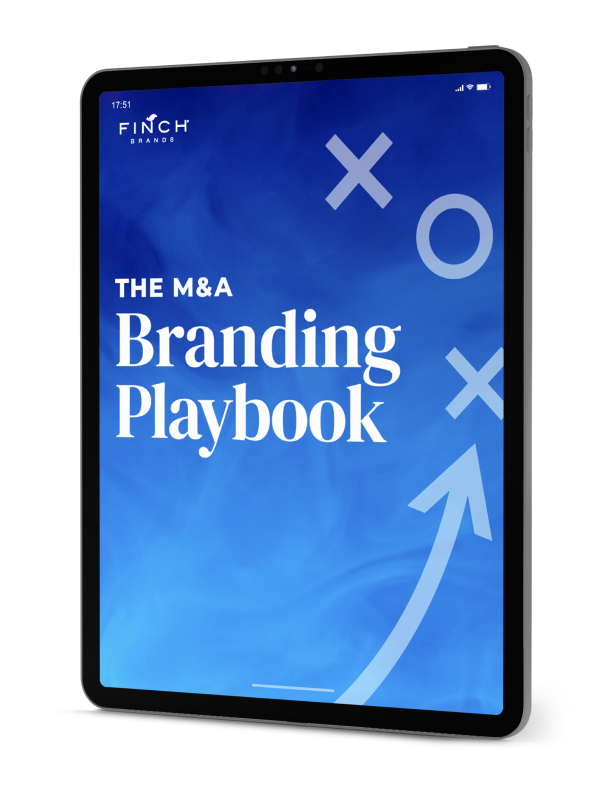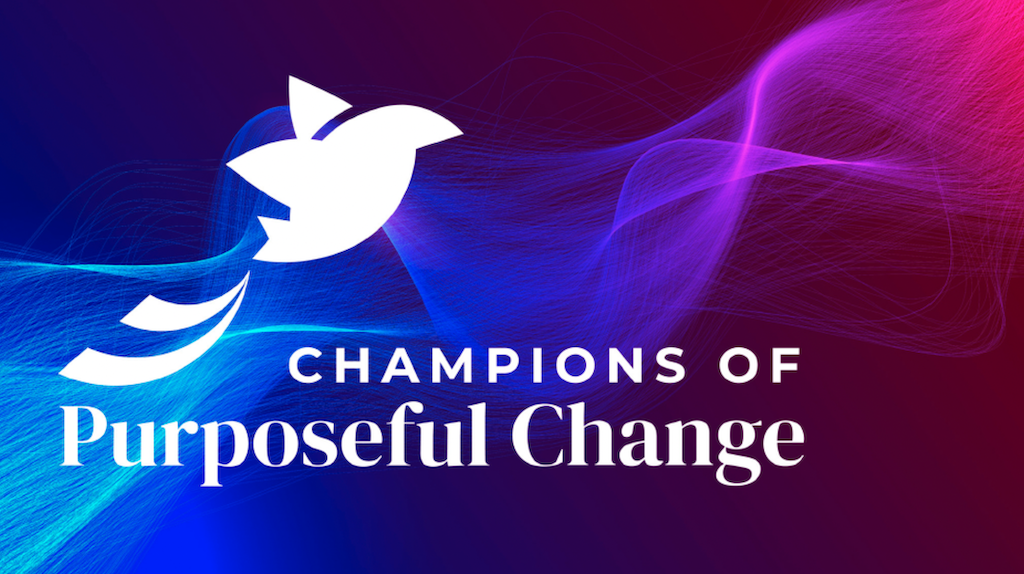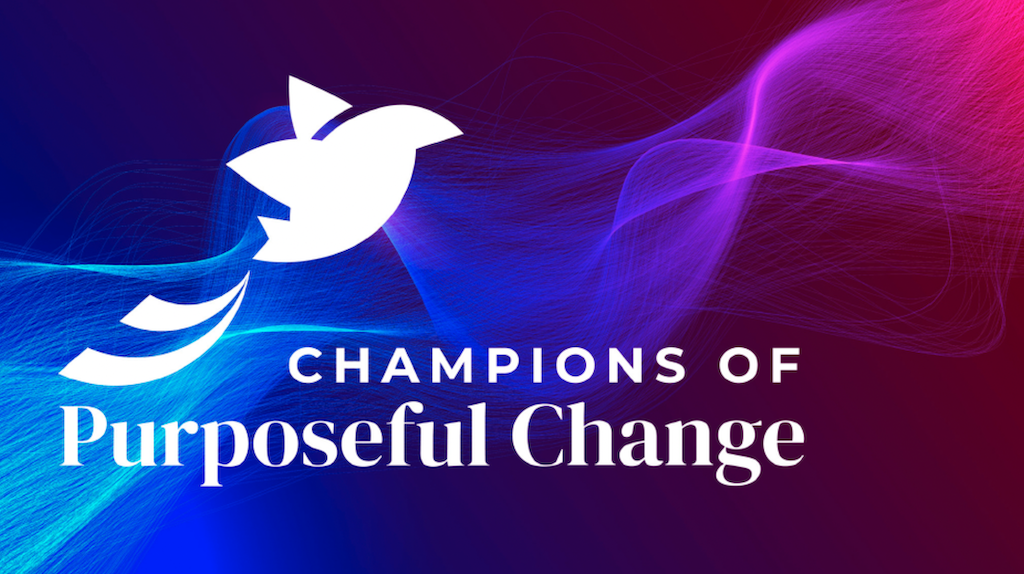Making Energy (and Branding) Easy – Steven Downey, President/VP Marketing – Shipley Energy
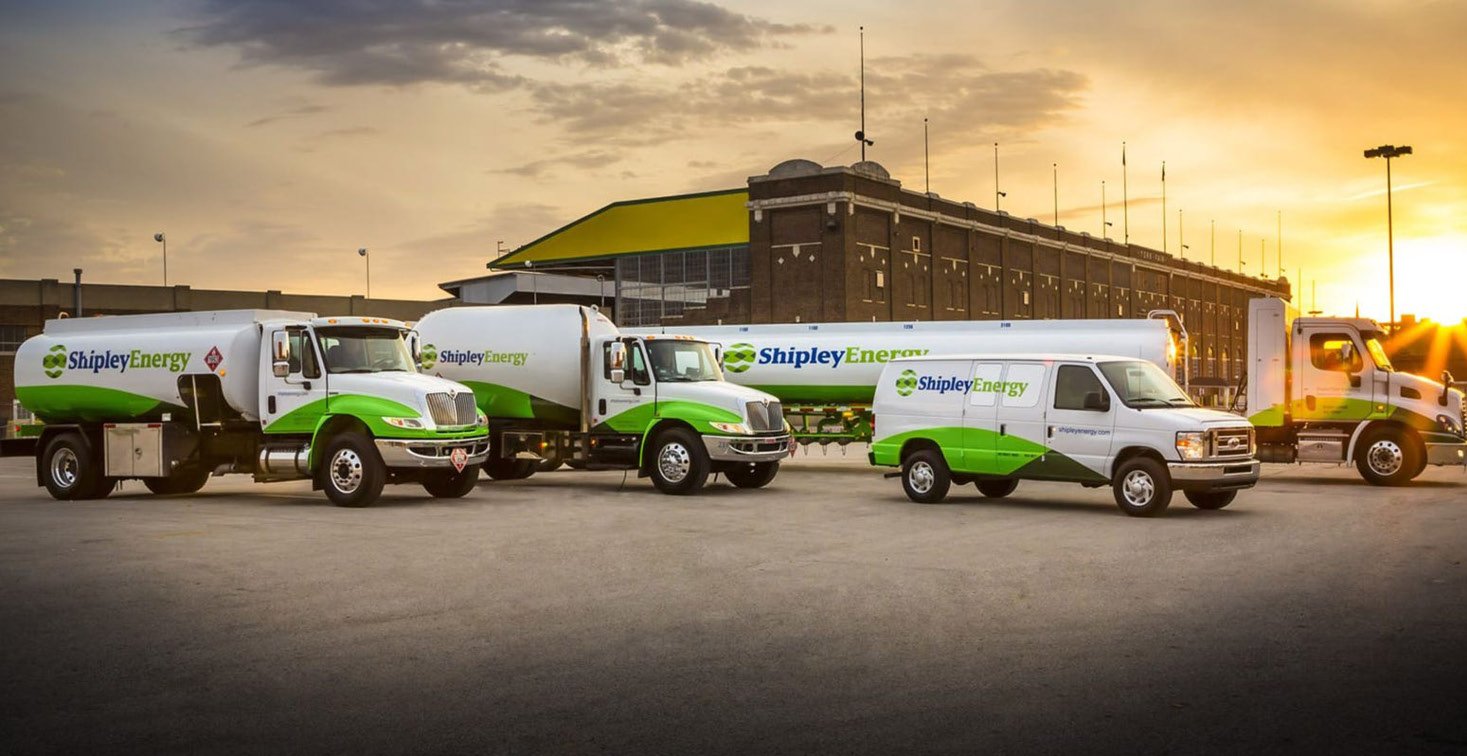
Steve is an accomplished senior executive with a proven history of driving revenue, cultural, and operational improvements at both startups and more mature organizations. With over 25 years in marketing, technology, and sales leadership roles, Steve provides a comprehensive perspective on how to bring about change within an organization. Shipley Energy uses their energy and services expertise to make a positive impact on your everyday life and the community you call home. If you like our podcast please leave us a rating and subscribe!
Podcast: Download Subscribe: iTunes | RSS
Transcription:
Bill: Greetings one and all. Real World Branding. I’m Bill Gullan, president of Finch Brands, a premier boutique brand consultancy. Thank you for joining us. Today you’ll hear from Steven Downey. Steve is the president of Smart Touch Energy, which is one of the businesses of of a Shipley Energy, Shipley Group, based out of York, Pennsylvania. Steve will take us through a lot of the… Shipley’s fascinating. The companies and interests of this organization, privately-held organization, fourth-generation, super interesting, and as you’ll hear there’s a real sort of depth of of culture and feeling and family in how Shipley operates, not only with its team, but ultimately with its customers.
Bill: A lot of this is taking place against a backdrop of a very dynamic industry, energy as a whole, or large. There is unprecedented competition, not only across energy sources, but deregulation has led to energy choice in many, many different markets and many, many different entrants; whether it’s heating oil or natural gas or electric or residential, commercial, all sorts of energy types. Obviously the progression of renewable technologies, as well as a greater public consciousness around sustainability is creating trends and momentum. Steve’s going to put a flag in the moon and tell us a little bit about what the state of the union is in the energy market and how Shipley is seeking to build its brand and take advantage of those opportunities. Enjoy hearing from Steve Downey.
Bill: We’d like to welcome Steve Downey, who’s the president of Smart Touch Energy, to Real World Branding. Steve, thanks for joining us.
Steven: Thanks for having me. I’m excited to be here.
Bill: Wow, thank you. And within the Shipley Energy umbrella is Smart Touch and we’ll certainly get to that, but take us a little bit where we typically start, a little bit through your career, and obviously the energy sector has been really interesting. You’ve had some tech roles, some sales roles. That journey that you’ve taken to the point where you are, we’d love to hear about that.
Steven: Yeah, it’s a long and winding road. I started off as a high school work study at the National Security Agency doing computer work. I did that for eight or 10 years, somewhere around there, as both an employee and contractor, and realized it wasn’t going to make too much money and didn’t really enjoy it too much. There was somebody that came to me at a golf tournament one time and just said, “Hey, you’re decent with people. Would you be interested in this sales engineering role?”
Steven: And I said, “I don’t even know what that is.” And so he explained it to me and it sounded like someone I’d really enjoy. I went and did that for a couple of companies, selling identity and access management solutions to the government, which was a lot of fun. I got to work with a lot of my old government cronies, but on the other side of the table from them. Got to really launch… For me, with the common access card, the ID card that all the military has today. We launched that. We rolled that out. That was a really huge undertaking. I was very proud of it.
Steven: And then in 2003, I had a daughter that was born four months prematurely, and after that, I kind of went through a period where wanted to do something a little different. I’d been around the government space since 1991 and wanted to go off and try something different. Because of the amount of time I spent in hospitals for six months while she was there, the healthcare space was really something I was interested in. And so a friend of mine had gone to work at Siemens Medical and he was building up a channel sales organization and said, “Hey, we could use somebody like you over here. Would you be interested?”
Steven: I said, “Absolutely, let’s go.” I spent three years at Siemens. It was some of the most rewarding periods of my career. I met some really great people, was flying all over the place, meeting all these great customers in all these different institutions and health insurance companies and healthcare facilities. The biggest ones in the world. Our partners is one that always sticks with me, and also one of my main customers was Mount Sinai Medical Center up in Manhattan, and loved it. Absolutely loved it. Siemens decided to get out of the identity and access management space in 2007, and so I transitioned everything, spent about nine months transitioning everything over to another partner.
Steven: And then around the end of that I said, “Well, I’ve got to figure out what I’m going to do now.” I decided I can stay with Siemens and I can be on the road four and five days a week as I was before, but my kids were four and seven at this point, and I really got tired of telling them goodnight over the phone. And I said, “Okay, let’s, let’s find something a little closer to home.” There was this energy company in New York, and I knew doodly squadoosh about energy. I knew a lot about identity and access management. I knew a decent amount about healthcare how the government ran and those types of things. I didn’t know anything about energy.
Steven: I thought to myself, well, I’m thoroughly unqualified for that job. Let’s apply for it.
Bill: Let’s do it!
Steven: They called me a few weeks later and I’ve been here almost 11 years. It’s been incredibly rewarding. I started off as the chief technology officer. I served in that role for six years, and then in the beginning of the fifth year, the owner, Bill Shipley, came to me and said, “Hey Steve, would you be interested in taking over the marketing team as well?” So serving as both VP of IT and VP of marketing.
Steven: And I said, “Sure. Absolutely.” I’d done sales, I’d done some marketing before, I’d done some product development, and as more and more of our interactions with customers and the way we attracted customers happened digitally, it felt like having those two organizations under one umbrella, or at least much more intertwined and working together, would be beneficial for us. I did that for a year. I’m very proud of what we started there. We implemented Agile on both the software development teams and in the marketing teams. I saw a lot of benefit to doing that. Then I led this acquisition, this little small thing, the Smart Click Energy at the time, and so I led that. Once we closed on it, I kind of ran all three for a few months time, and then Bill came to me and said, “Hey, why don’t you just run the Smart Touch piece?
Steven: As much as I really hated giving up the technology and the marketing teams, I thought we were really making some progress, but at the same time it was a chance to really jump in on something and own it completely, and it was a great opportunity. We’ve been able to grow the customer base by 550 or 600%, the gallons by 300, 400%. We do some things that are very, very different than other people in the heating oil and propane market, and then last year I took back over the marketing team again, or almost two years in. I came back and now I serve as both the vice president of marketing for Shipley and the president of Smart Touch.
Bill: Right. One particularly notable twist and turn that you talked a little bit about is this… I think it’s a transition that you don’t hear of, maybe that frequently, which is a CTO or a tech lead moving into a VP marketing role. It really sounds like the nexus of that was the strength and need for the digital marketing piece. It sounds like that’s really where your area of of passion was, at least initially, on the marketing side.
Steven: Without question. I think my technology background and having done technology sales as well, but my technology background specifically, I’m really in tune with numbers and analytics and those types of things. That was something we did not do well here. We were very traditional in the marketing. We’d blast out 70,000 mailers and hopefully 1,000 or 2,000 new customers would show up. But we had no ability to measure effectiveness. We had no real ability to measure ROI at any kind of granular level. They had no insight into the customer journey at all. Those are all things that are very, very important to me. We are in the golden era of MarTech. Oh my goodness, there’s so many great tools and applications out there to allow you to engage with customers differently, and also see those insights that you couldn’t see before, and make decisions that you weren’t able to more clearly see before.
Steven: One, it kind of was a natural fit. I didn’t see it at the time, but Bill Shipley, being the visionary that he is, did, and so we’ve completely shifted the way that we do marketing today. We still do some mailers, we still do some more traditional things, but really it’s geared a lot more towards digital. It’s everything we measure, measure, measure all the time. We’re always looking at ways to tweak and improve, and that’s where the agile piece comes in. It’s not that we follow it to the T, but we’re always looking to increment, measure, improve upon every single iteration. So far we’re doing okay. We can always do better.
Bill: Absolutely, but it’s quite a story. Shipley is a broad-based provider, residentially, commercially. Talk, if you would, for a minute about… it’s probably really interesting to be in the energy space right now. You have the legacy of deregulation and energy choice that has created a market that is a lot more open and a lot of folks are in it, and so it’s challenging to build connections and stand out. At the same time, what you’re selling, propane or heating oil or whatever it is, is a commodity. And so the level of, almost product level distinctiveness, is minimal compared to some other categories where you’re a manufacturer of bells and whistles and features and specs. Then you layer on top of it, the renewables and just the sort of the world’s changing in terms of sustainability and sources of energy. Give us a little bit of a state of the union of kind of how you see life in the energy sector today and how that impacts Shipley’s business.
Steven: It’s really interesting, because we kind of have, I’d call it two distinct businesses. We have the delivered product group, which is your heating oil and propane and diesel on the commercial side, primarily. On the heating oil side, it’s continuously shrinking, although as Bill Shipley says, he did a study and in 1989 he told his dad there would be no more heating oil and they’d be out of the heating oil business five years later. It’s still around-
Bill: Yeah, it’s going to be a while.
Steven: But they have gone to cleaner versions and less sulfur, but there still is that big push to get rid of it. But there’s a monumental, a huge cost associated with it. It will be around. It will bleed off after a while. Propane’s one that still is growing in areas where natural gas is not available essentially, especially in the North. In the South you can get away with heating on electric primarily, but the true commodity part of the business, and they’re all commodities, but we can differentiate ourselves in the quality of the service when it comes to delivery, those delivered products. We’ve got 100 vehicles on the road every day and that level of reliability is something that customers really appreciate and value.
Steven: However, now when you get to the electricity and the natural gas side, that’s where it’s a wild market. When we first got into the natural gas business, and this would have been about 20 years ago now, when Pennsylvania first deregulated natural gas, we may have been the first, or at least we were one of the first two or three in the UGI service area that was a competitive supplier. It was shooting fish in a barrel. It was easy. You’d send out 200,000 mailers, you’d get 5,000 customers. But then now we have somewhere in the neighborhood, 40 50 80 different suppliers, and now electric. Everybody got into it after electricity deregulated, because they thought it was easy. Although then the polar vortex came and a lot of them went out of business. All the small guys. They didn’t have the capital.
Steven: It’s kind of a wild market, and maybe the most interesting thing about the market is that the market is, in itself flawed, in that you have a utility who is the supplier of last resort. They have the law of large numbers on their side. They have the most customers, and they are regulated in that they really can’t make much of a profit on the supply side, which is where we compete, us and all these competitors compete. You have somebody in the market who is essentially in there at a zero margin, let’s say. Companies that are for profit, now they make a lot of profit on the utility side of the business, not on the supply side. We have this market that is a fake market, to some degree. You have one participant who’s not allowed to make money. And so how do you compete with that?
Steven: You look at different ways of engaging the customer. You look at different ways of attracting… Look at what customers you attract, is number one. Do you attract the people that are just going to switch and switch every year? Or do you attract people who are likely to stick around longer? Utilize things, we do utilize a rewards program, which gives people cash back. But really trying to be different. We’re trying to engage the customer differently. We want people to call us. We often dread calling the cable company or this, the different companies we deal with. We try to turn that around and say, that’s a huge strength of ours. We want people to call us. We want them to ask questions. We want to engage them differently and not be just something that they loathe to do, or they only interact with us via emails or online.
Steven: It’s a crazy market, but the renewable space is something that’s really exciting as well. We’re working on a project with you guys in that space and we’re really excited about that launch, which will be coming up here in about a month to a month-and-a-half. It’ll be something that nobody else in the marketplace has. It’s getting more and more competitive. Almost everybody has a renewable product when it comes to electricity, on that side. We are starting to see some companies offer carbon neutral natural gas, so they buy a carbon offset for each therm of natural gas used. That’s growing and the cost of those things will grow as a result, but I think it’s exciting and I think it’s good. The more conscious we are about it, the more investments we’ll make in it, the more opportunity there is. It doesn’t necessarily take government regulation in order to change it.
Bill: Yeah. Well you sort of leaned into it a little bit, but I’d like you to even go a little bit deeper in just kind of talking about brand. You mentioned how, at least initially in the early days of choice, it was really about promotions and it was about sending a certain number of pieces of direct mail out. After a while, you knew pretty much what you’re going to get. You know whether suppliers show up at the airport or they show up at the gas station or a variety of different places, where basically they’re going to give you frequent flyer miles or they’re going to give you this blanket or whatever the case may be. And then they compete on price, and so there’s a transactional and promotional side of this, but you were talking a little bit about some of the things Shipley tries to do to create genuine connection. What’s the role of brand in this wild, wild category right now?
Steven: Well, for us, we build upon the history of who we are. Shipley was founded in 1929 as the Roosevelt Garage. They’ve been in business for 90 years now and they have built a reputation, a well earned reputation, over those 90 years of being a very reliable… We invest heavily in the local community. We’re really engaged in the local areas. It’s more than just a logo. There’s a certain personality, there’s a certain authenticity that we want to promote in everything we do. We think that people can see through advertising gimmicks. I feel like the typical consumer sees through this stuff all the time when it comes to, whether it be all these wonderful referral programs, or any of these other great promotions. That’s fine, but who are you dealing with? Who’s the underlying people you’re dealing with? Do they share your values? Are they doing something good?
Steven: That could be in your local community, whether it be in a renewable space, it’s whatever’s important to you, but just that level of authenticity, I think, is something that is incredibly important and I don’t care what the brand is and I don’t care what product you’re selling. I think if you’re not looking to be that and be real, then it doesn’t matter. You’re always going to be just transactional in nature.
Bill: Right, makes sense. The Shipley, sort of family of interests, you talk about the history, it’s a very vast… Talk about some of the things that nobody would know that are part of the Shipley’s sort of family of companies.
Steven: Well, let’s see. One of the funniest ones I like to tell is that we own the, we used to own a water company, an oil company and a water company together under one umbrella. They don’t mix and they didn’t.
Bill: Like oil and water, yeah.
Steven: Bill is a majority owner of the York Revolution baseball team. We have the wholesale fuels business, which really supports the other businesses, but we buy and sell, last year, it was about 190 million gallons of fuel for different partners, and then we also haul about… I think we hauled about 80 million gallons last year. Those tractor trailers you see going down the road that deliver gasoline to all these different gas stations and truck stops, those are all… we do that as well.
Steven: I’m trying to think, what’s another good one that we do? We have a tank monitoring company. We have two or three different of everything. Also, one of the things I’m really proud of is Bill has a good friend who started the Positive Energy Arts Foundation. That’s something that we invest a lot of time and energy and money in, promoting the arts to schools who’ve had them cut. York City is one school, specifically, that’s had the arts essentially cut out of it, whether it be dance or whatever it may be, and so this Positive Energy Art Council works with these, traditionally more urban schools, to a to bring arts back into the classroom.
Bill: Yeah, that’s very cool. And the role of family, and obviously the Shipley’s had a profound impact on York, but well beyond, it sounds like just in meeting various members of the team, that there is a depth of feeling around community connections and involvement that really spreads throughout the entirety of the business.
Steven: Oh, without question. Bill is very… The amount of money the family gives to different organizations and how they support these organizations in the South Central Pennsylvania area is astounding, and the vast majority of it, they do not want us to talk about in any way, shape or form. It’s not about self-promotion, it’s about doing the right thing. Whether it be universities or whether it be scholarships, whether it be local Boy Scouts, the YMCA, we invest heavily in, and almost every member on the leadership team, I think actually every member on the leadership team, has served or is serving in some capacity on a board, whether it be a local charitable board of some nature.
Steven: Bill believes very heavily and strongly in that. The family has a 80, 90-year commitment of doing that, and it’s really exciting. It makes you feel good to work for in an organization. I think that the organization is truly an extension of the family, in that we feel, we are proud to carry that name because of the history. We are proud to be associated with it and proud of the things that they engage and the way they engage the local community. Not to mention, Bill is just an absolute visionary and just a wonderful, wonderful person.
Bill: Fourth generation, right?
Steven: Fourth generation, yes. And actually one of his children worked here up until she had a baby, about a year to a year-and-a-half ago. And another one, his son is actually working here now. Just like Bill, he’s doing rotations through different parts of the business to learn and learn. If he wants to come in and take it over at some point, that’ll be up to him, but I’m sure Bill would love that and the family would love that, but we’ll see. It’s kind of up to him at that point.
Bill: Yeah, terrific. I believe Shipley Group, at one time, had a bunch of travel stores and some Arby’s and a bunch of other things that the company has been into.
Steven: Yeah, at one point when I started here, we had 22 convenience stores. We had three travel centers, which are like truck stops, and we reached a peak of five Arby’s, four or five Arby’s, I believe. We realized, at some point, that the players in those markets are… It’s very competitive. You’ve got the Sheetz and the Rutters and Wawas and those guys, and Royal Farms, who are just making huge investments. We wanted to get back more to our core competency and what we do really well and that’s serving energy customers and delivering fuel and taking care of them in that way. That just didn’t kind of align with that.
Bill: Yeah. Now it makes sense. Makes sense. There’s something to be said for focus, no doubt.
Steven: Yeah, absolutely.
Bill: And so in that spirit, you mentioned the renewables launch that’s upcoming. Are there any other things we should be looking out for? Shipley’s is just a fascinating company to follow, in general. Any big sort of high priority items that are kind of on your agenda, at the moment, that the market or the world will soon see?
Steven: Yeah. The big one we’re working on with you, which is the carbon neutral delivered fuels brand that we’re going to launch. That’ll be upcoming. The stuff we’ve really been focusing on right now is very much internal, and by that I mean we are really taking another really true, hard look at the customer experience in every way they interact with us. Whether it be online, whether it be by phone, and how can we improve that? There may not be a lot of external announcements in the next month or two, but internally we’re putting together a working group that’s going to focus on, how can we make every experience outstanding? Every experience that a customer has with us? Every time they complain, we want to just take care of them.
Steven: We did a survey one time of the customers that have been with us the longest. The ones that have been here 20 and 30 years said at some point we had let them down. At some point we’d let them run out of fuels. At some point we had messed up a service call, whatever it was. But you know what? The way we responded to it was why they were still with us. We take a lot of pride in that. That’s kind of where our focus is right now. It’s really like, okay, we’re going to regroup. We just launched the new ERP system, which was wonderful. It tied up a lot of resources on almost every part of the company for a while, but really this focus on, let’s again go back and look and say how we can make that customer experience better, and how can we differentiate ourselves in the electricity and natural gas space?
Steven: Here’s one thing that I’m really excited about is, like many other suppliers, we’d get good people on a fixed rate for natural gas or electricity and then they would roll into variable. And because of that, we’re not sure whether they’re going to be with us for one month, two months or 10 months. Our purchasing was affected. The price we were paying was significantly higher, so the price the customer was paying was significantly higher. We’re going to only renew people into a new contracts. We’re not going to flip anybody to variable anymore. We believe that was something that customers just had a bad experience with. Anybody who’s ever been with a competitive supplier and has been rolled into a really super high rate, as some of our competitors have done, understands that that’s a risk. What we want to do is say, “Okay, look. This is kind of a low to no risk option here. You’re never going to roll into a super high rate, because you’re always going to roll into the next six month, 12 month, whatever.
Steven: That’s something, it seems kind of nuance-y from a brand perspective, but it actually has a pretty big impact in how we buy and how we serve the customer. We think that as a result, the thing about the electricity market, which is crazy, is that most suppliers churn about 40% of their book every year. If you want to grow, you’ve got to replace the 40% and if you want to grow by 50, you got to add another 10. And so what can we do, whether it’s through all of these programs, whether it be rewards programs or these fixed renewal, how can we reduce that? If we can reduce that 10 to 20%, which is quite reasonable, that means a better deal for every other customer we get and continued growth for us. We’ve been able to continue to grow, but we think this could help us even more.
Bill: Yeah. Fascinating. I guess the way we end it normally, your career journeys, you talked us through it, it’s a really interesting series of moves that took you in different directions, expanded your sort of executive profile. Any words of wisdom from your own career up to this point for those who may be listening to this and who were sort of inspired by your path or trying to find their own, anything you’d want to share to people as they’re starting out or starting over about what it takes to progress?
Steven: A couple things. One is something I truly… and it even annoys me when I hear people say otherwise or represent it otherwise is, you lead people. You don’t lead companies, you don’t lead departments, you don’t lead groups, you don’t lead teams, you lead people. All of those are made up of people. Having relationships with those people and the best interests of those people truly at heart and then being invested in those people. That’s how you create a team. That’s how you create an engaged team. That’s how you create… everything good comes from that. One of my pet peeves is how we use culture anymore. Some people use culture anymore and it’s like, well, how many times can we have a food truck? Is there a mandatory number of good job emails I have to send this week?
Steven: Authenticity is so important. It comes from really being real and really being engaged with your teams and with the people you work with and serve. The other thing I would say is a company I worked for, hired a new CEO, and a gentleman by the name of George Garrick came and was the CEO for a period. George had built a couple of companies up and sold to Microsoft, and even at one point was the CEO of Wine.com. Interesting guy, I only met him one time as as he was CEO, but he came out to the East Coast and met with the government team and we had cocktails that night. I kind of opened up to George. I was lubed into opening up the George and I said to him, “Look, We can do better. We can do this. We’ve got this opportunity and we’re not taking advantage of it. I feel like we’re just scared.”
Steven: He said to me, “Steve, you know what? I’d rather them make 10 decisions and have seven of them be wrong than make none of have everyone be right.” The point with that was you got to take risks. I’ve been fortunate that I’ve had great mentors. I’ve had great people that I’ve worked with. I hope that they feel the same about me and that I’ve taken care of them as well. But when there’s an opportunity in front of you, take it and don’t be scared of it. Go for it.
Steven: I go back and I think about George’s words all the time and I think, okay, there’s an opportunity there. The only failure is if we don’t learn from it. If there’s something that may not turn out the way we wanted it to, but if you make the best decision you have given the information in front of you and you grasp that opportunity and it doesn’t exactly turn out, you didn’t fail. It’s a learning thing and it’s okay. Just take risks. That’s the thing, more than anything, especially for younger people that are coming out in college is that I don’t know that they teach them that enough. I don’t know they teach them to really take advantage of any opportunity and you’ll be rewarded with it eventually. That’d be my thing. I’m a risk taker by nature. Drives my wife crazy.
Bill: Yeah. No, it makes sense, and you’re a testament to that, all the opportunities that you’ve sort of created and pursued that have led to rounding you out as a business person and leaving you in really cool places with cool companies. It’s an inspiration. Steve, thanks so much for your time and insight.
Steven: Thank you. I appreciate it.
Bill: Thanks to Steve. Fascinating career, really interesting business. The leadership that he is showing and that Shipley is showing, it is definitely a company to watch and full of cool launches and beliefs and check them out. We really enjoyed having Steve with us. There’s three ways here, at Real World Branding, to support what we’re doing. I want to talk about reviews for a minute. We are told, I think the word is, that the more reviews and ratings that you have and the higher that those ratings are is what helps things become visible within podcast stores or app stores, whatever the case may be. Now, looking at our reviews, Kat, our executive producer and I, were sitting here talking about this and I was like, “How is it that we only have 25 reviews? We get so much feedback about the show, but we’ve only had two reviews this entire calendar year.” Yet we know that y’all are out there listening.
Bill: And then we looked at each other and I think we realized that we listen to a lot of podcasts and we don’t review them either, or rate them. I don’t know what it is. I say this every other week, whenever we do an interview, that it doesn’t take long to click the stars and maybe write a sentence or two. But for whatever reason, I don’t do it for the podcasts that I love and nobody really, or very few, people do it with us. I’m going to ask you this week to consider doing that and make someone’s day. It would make me very happy if we have more than our current 25 reviews.
Bill: Now they’re all five star, that means a lot, but we like feedback too. Three ways to help us are to give us a rating, take just a moment and give us a review, and then to reach out with feedback, with comments, questions, ideas for topics and guests, @Billgullan on Twitter, @Finchbrands on Twitter, as well as any other social media source or email or whatever, How ever you want to get in touch with us. The feedback that we get, positive. It’s nice to know people are out there and listening, first of all, and finding benefit, if in fact you all are, that helps too. We’re excited to do this. We love doing it. We’d keep it going even if we didn’t hear a word from our audience, but we’re very grateful for the words that we do hear, so please feel free to reach out to us. We really do appreciate the input. That’s it, I think. Right Kat? We’ll sign off from the Cradle of Liberty.
